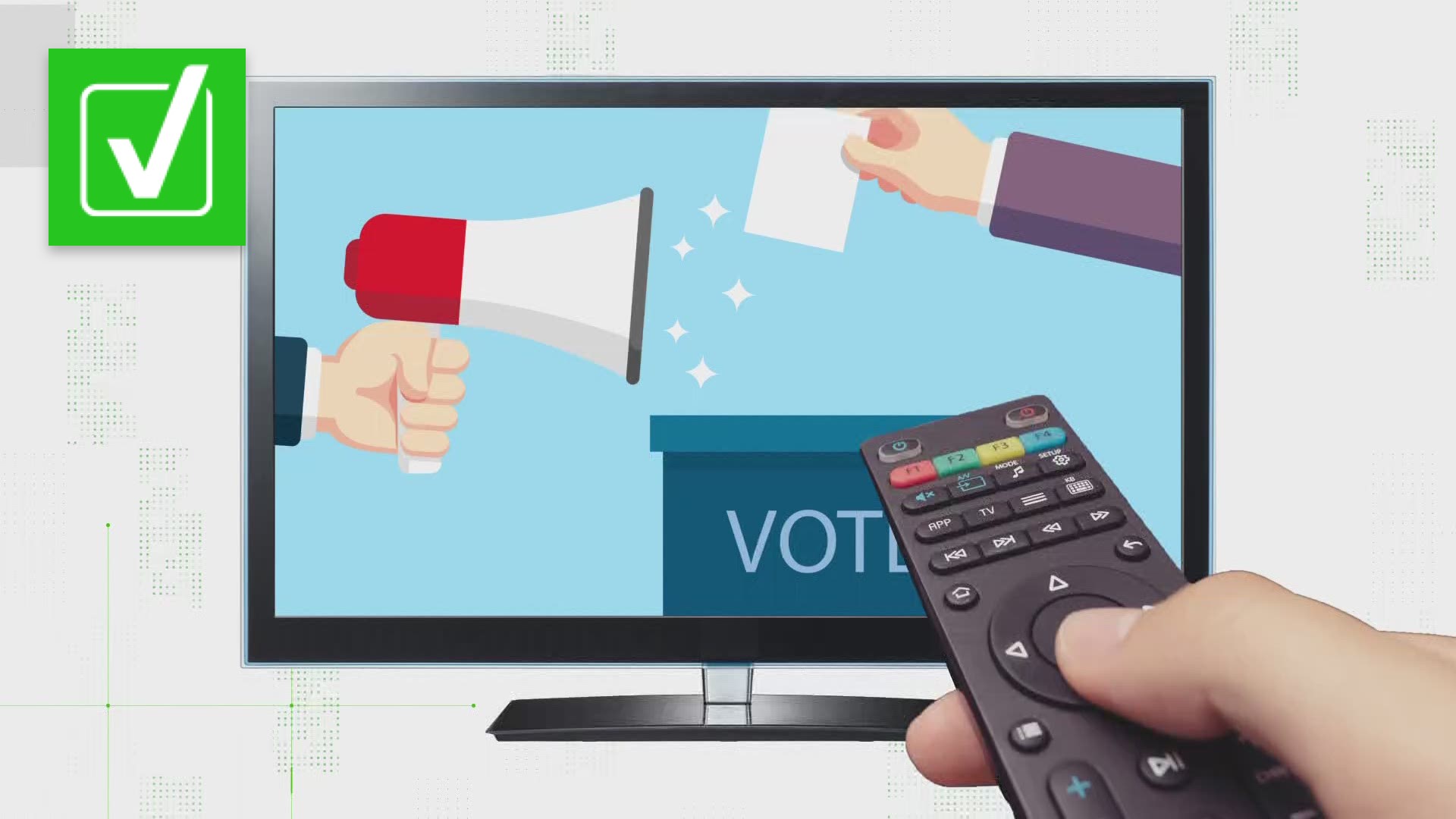ATLANTA — As another election approaches in Georgia, it’s hard to ignore the vast amount of political ads flooding the on air and online spaces. And as debates approach, it’s no doubt more ads will pop up as November 8th creeps up.
THE QUESTION:
Is it true that political ads do not have to be truthful?
SOURCES:
11Alive Political Analyst Dr. Andra Gillespie
ANSWER:
Yes, political ads can bend or spin the truth.
WHAT WE FOUND:
“There’s truthfulness and then there’s spin,” Dr. Andra Gillespie, one of Emory University’s Political Science professors said.
While the FTC regulates commercial advertisements, it doesn’t regulate political ads, and spin in a political ad falls under the First Amendment. Simply put, truth in advertising laws don’t apply to political ads and bending the truth is protected by free speech.
“Can people individuals lie to you? Sure," Gillespie said. "Can a candidate make a promise that they don't keep or that they have no intention of keeping? Absolutely. That's a moral lapse, that's an ethical lapse, that's not a crime.”
This isn’t to say a candidate can make wildly inaccurate and defamatory statements against an opponent without any thought, less they end up in court.
“Campaigns do not want to be held accountable for saying something that is so irresponsibly false, that they are subject to a slander suit for a television ad or for a libel ad, if this were a print ad,” Gillespie noted.
However, opinion and interpretation can play a big part in campaign ads. You can declare you’re the greatest politician to ever live. That’s an opinion.
An ad from former Georgia Senator Kelly Loeffler's campaign shows an example of interpretation.
In 2020, as Loeffler ran, an ad featured her opponent, Doug Collins. In it, the messaging labels Collins as a “typical career politician” who “isn’t who you think he is.” Some of the “evidence”, according to the ad, includes a picture with Democrat Stacey Abrams.
The picture used in the ad is real. The context and subsequent message of the picture used in the ad is subjective and therefore up for interpretation.
“If you want to label Doug Collins a RINO (Republican in name only) because he smiled and took a picture with Stacey Abrams without looking at his record, and realizing he was a staunch conservative in the House of Representatives, and a strong ally of (former President) Donald Trump, who's Donald Trump's pick, actually to replace Johnny Isakson in the Senate, then you could look at that one photo and interpret a whole lot that actually isn't there," Gillespie explained.
So, what’s the end goal of political ads that offer different interpretations?
“It’s not in the incentive of a campaign to present all sides of story," she said. "They want to persuade you that their side is the truest and most right, so it's really incumbent on voters to understand marketing tricks, the same way you would do it when you're thinking about how people sell you toothpaste and cereal and other kinds of things.”
Broadcasts networks cannot reject or alter ads, thanks to a decades old law. So, NBC, ABC, and CBS networks must air ads as is. But cable networks, like Fox News, CNN, and MSNBC, as well as social media platforms can reject ads for misinformation or untruthfulness.
However, ads must have “paid for by” or “sponsored by” included, and stations can reject ads from non-candidate groups, like Super PACS.
“People are allowed bluster; people are allowed to pander and to make promises that they can't possibly keep," Gillespie explained. "It is important for voters to be able to listen to that and to be able to cut through all of the noise and see when something is an empty promise and not and then judge those candidates accordingly.”
So, how can you fact check ads for yourself?
Many TV political ads will feature citations from news stories. A simple search can pull up the article or video the ad is referencing, allowing you to read the full context of the story and make your own determination. Local news stations and newspapers also fact check ads, debates, and other claims from political parties and candidates. Resources like Politifact and factcheck.org also provide opportunities to double check claims from candidates.

